Over 20 years of observations and direct community involvement means we have developed a strong understanding of the challenges and situations that rural villages face in Malawi. To tackle these problems, we have developed workshops and approaches which directly address these issues, offering realistic holistic approaches to empower communities to solve them.
E.A.R.T.H Workshops
Environment, Agroforestry, Regeneration, Topsoil, Health & Nutrition
Introducing Agroecology through effective holistic approaches, to directly tackle the climate change and increase resilience to changing weather patterns in rural villages.
Our workshops aim to increase food and water security, improve nutrition, soil health, local economies, and tackle deforestation and climate change. The workshops will empower communities to independently work towards their own solutions with a bottom up approach. Conventional industrial farming techniques are unsustainable and have negatively impacted ecosystems all over the world, leading to severe soil degradation, and the need for costly chemical fertilisers and pesticides to grow crops. These chemicals are expensive, pollute our water systems and soils, and penetrate into our food which is linked to chronic illnesses such as cancer, and heart, respiratory and neurological diseases.
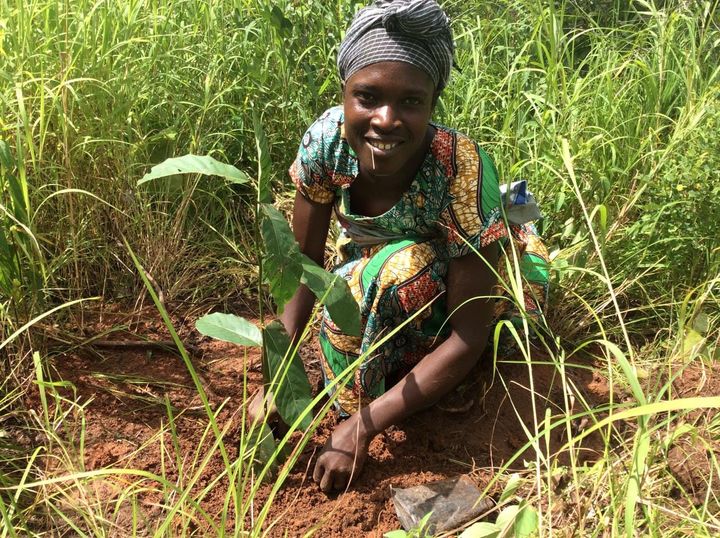
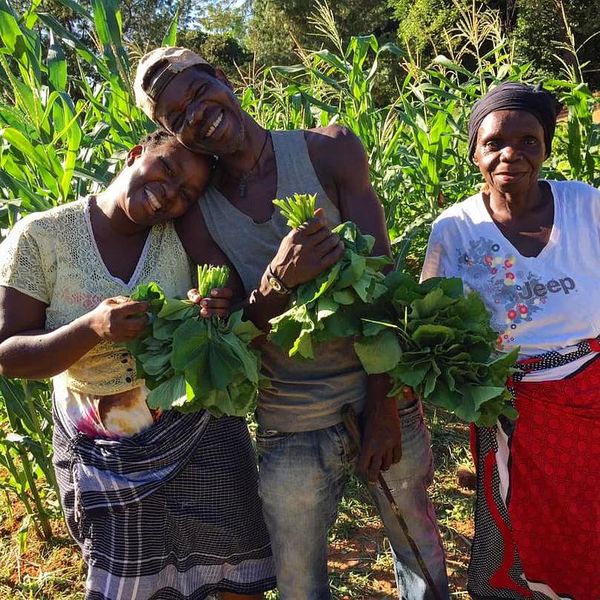
Global price increases for chemical fertiliser’s has led to worldwide food insecurity. Farmers are urgently looking for alternative methods to grow their crops. Agroecology is a scientifically proven method which works with nature, and not against it. Years of poor soil management, monocropping and chemicals have disrupted our natural ecosystems and this has had catastrophic effects on our food systems and natural cycles. This can change, and we can reverse this damage in a matter of months without affecting or reducing yields. with the right knowledge and a change of attitude towards, we can produce healthy soils, crops and ecosystems, while capturing huge amounts of carbon in soil, tackling climate change. Agroecology also makes the communities most at risk of flooding and natural disasters to become resilient.
Our experienced community development outreach team will deliver weekly workshops rural villages. A year long support program will increase implementation rates and build confidence in these communities, to adopt and develop their new skills.
1.Workshop Introduction & Movie- ‘The Seeds Of Change’ film raises awareness and encourages debates on critical social economic issues at a community level, including gender based violence, child education, the effects of climate change, deforestation, and women empowerment. Discussions will encourage the community to engage and participate in the following workshops…
- Mbeya Fertilizer– A demonstration on how to make low-cost organic based fertilizer.
- Compost– A demonstration to make compost using free materials which are found in most villages.
- Fuel Reducing Cook Stoves– a demonstration to make fuel reducing cook stoves which use 1/3 of the firewood as a traditional stove, made from locally sourced clay.
- Soil Health & Mulching– Discussions and a demonstration about how to build and improve soil structure and fertility.
- Crop Diversity & Agroforestry
- Health & Nutrition- A cooking demonstration with healthy additions which can be easily grown at home.
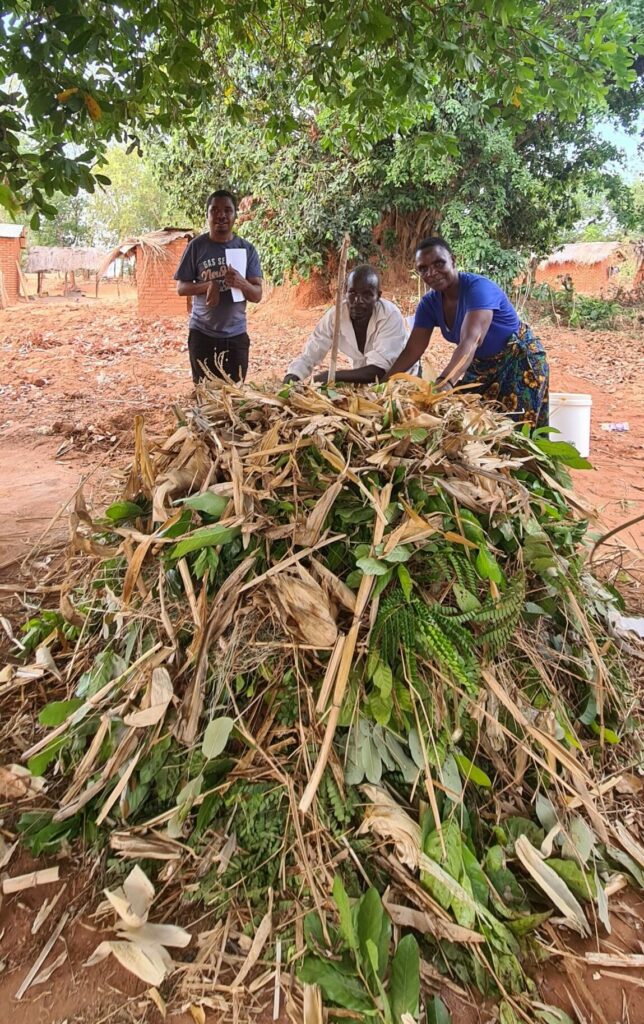
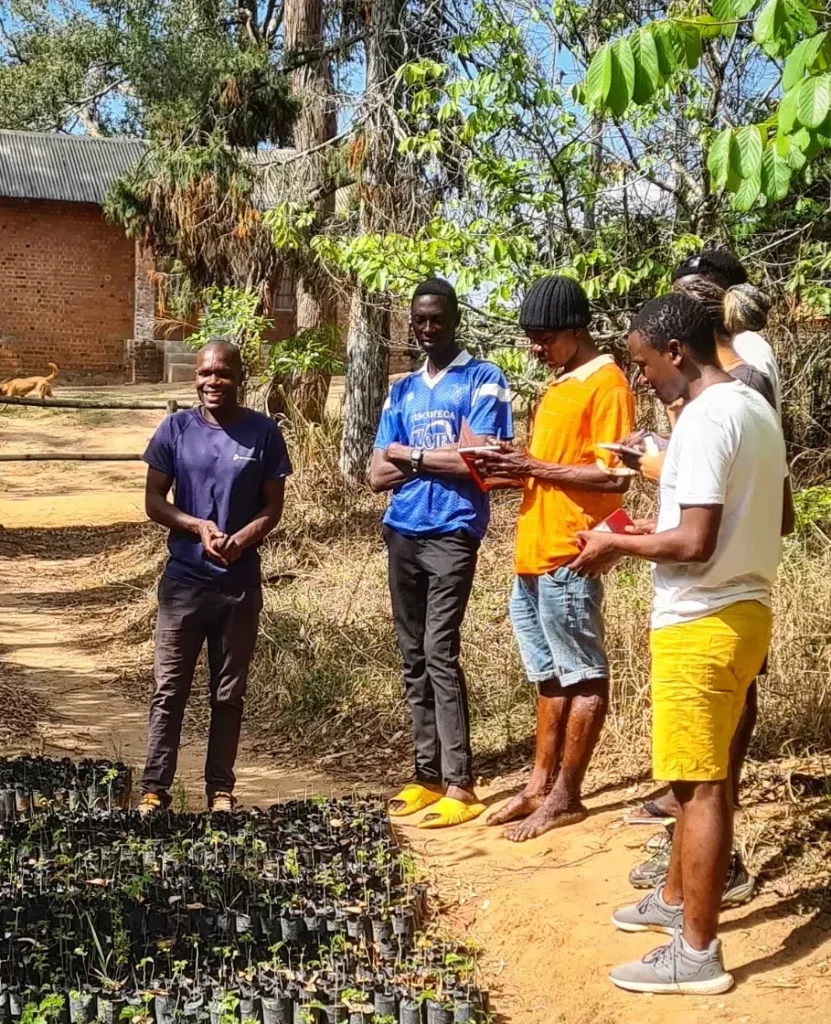
Planting Trees
Deforestation in Malawi is a big issue. The impact is affecting Malawian citizens more and more each year, so we are working towards these issues by providing trees, and educating communities about why it is important to replant and care for them.
Our tree planting projects are divided into three different types of reforestation projects.
1. Educating communities through a series of interactive and beneficial workshops which promote the benefits of village forests, and growing trees on private and public land. We will provide indigenous, fruit and timber trees, planting them with communities.
2. Educating students at schools through the Malawi Schools Permaculture Clubs program, providing and planting a mixture of fruit trees, indigenous trees, and other useful trees at participating schools/ The trees are cared for, and monitored by the children in the clubs and supervised by teachers.
3. Planting trees on private land, promoting agroforestry approaches that benefit both smallholders and nature. The trees will include indigenous species along with cash crops and trees which can provide benefits for farmers and landowners in the future.
Monitoring Our Tree Planting...
We will document and count all trees provided to communities, and visit areas where trees have been planted, year by year, to monitor survival rates.
To protect the trees we plant, we will work directly with communities to deliver the EARTH workshops and awareness campaigns. Communities will be aware of the importance and benefits of protecting the trees, and the dangers and bush fires, animal grazing and the negative effects of deforestation.
We will create new sustainable ways of income through sustainably grown cash crops, such as cacao, which benefit from the shade of trees.
We will plant the trees in communities which we already work together with through our community projects, including our nursery schools, disability centers, and the Malawi School Permaculture program.
Tree planting sessions will be led by Butterfly Space’s experienced community development outreach team, who are genuinely enthusiastic and passionate about these topics.
Support this Project and Plant Trees
This opportunity brings together the perfect partnerships:
– Individuals and companies that want to plant trees
– Individuals and groups that can plant trees
In cooperation with local communities and smallholders every single tree is planted and raised by hand, and need to be delivered to their new homes!
Our tree planting projects follow a holistic approach, that give the community members an opportunity to generate an income. Therefore this job has to be paid for.
The more support we receive, the more trees we can plant, creating more and more opportunities.
You want to get involved? Contact us now…
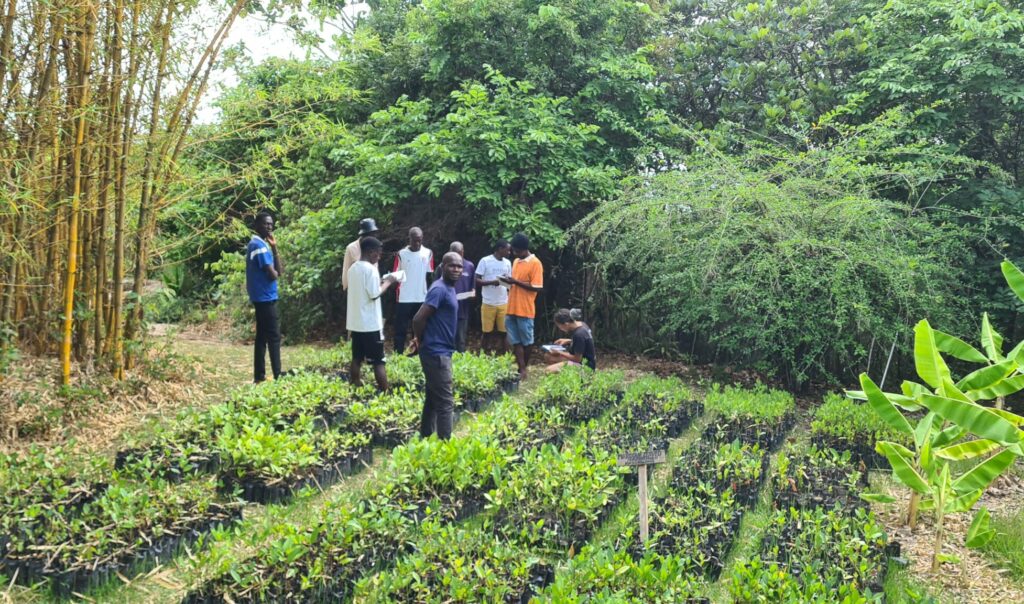
We provide a transparent and easy way to get involved in tree planting and CO2-reducing activities for you, or your company, providing opportunities to make a positive impact.
We find individual solutions for every type of business and help to find an integrative way of getting involved in climate and social projects. Just contact us.
We consult companies in finding the right strategy for their social and environmental projects.
Other Demonstrations
Butterfly offers a space to showcase alternative green demonstrations to our community, visitors and school groups. Butterfly Space Lodge uses eco-friendly compost toilets in our communal spaces and guest rooms. All the grey water from the site is used on the growing permaculture gardens. We have solar heated water, using both affordable local methods, and solar hot water units. We also use fuel reducing cook stoves (“Changu Changu Moto”) which were built for us by Ripple Africa, and plan to demonstrate building these stoves in villages in the coming year. We reuse and recycle as much of our trash as possible for tree & plant seedings. We also have a tree nursery situated at the lodge, compost production, and organic fertilizer production.
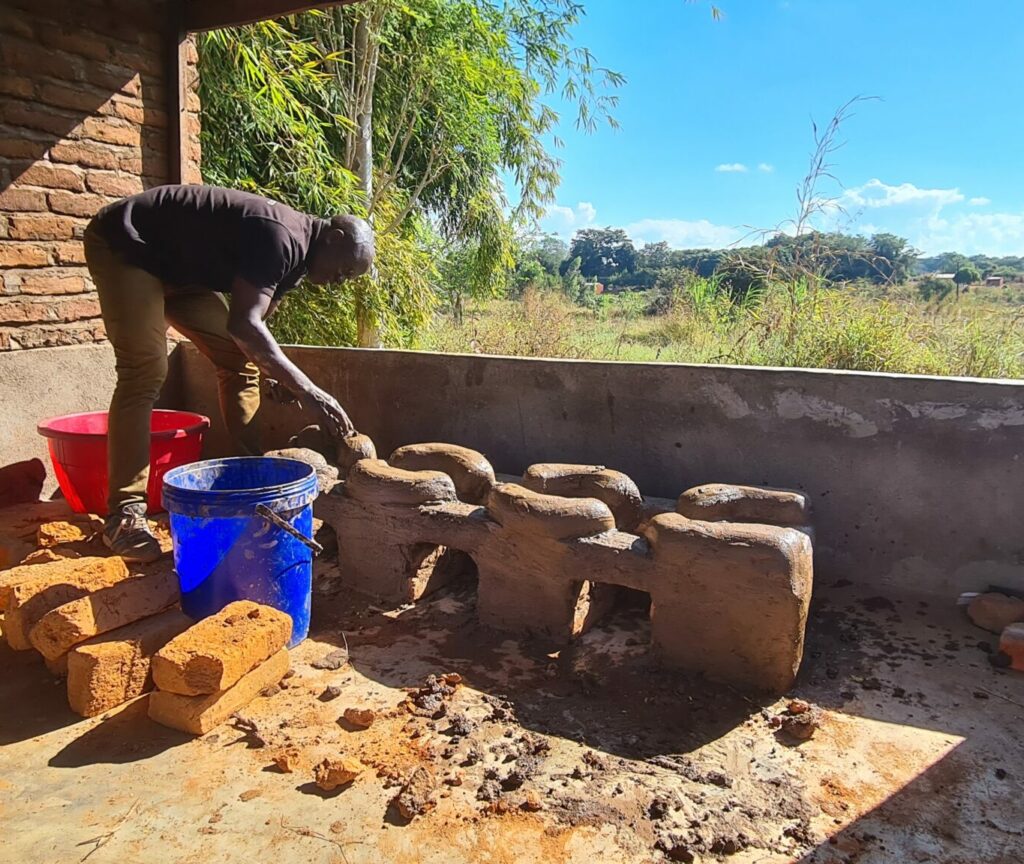
Butterfly has many permaculture plots around the site. The community, and visitors can see all of these practices by following our nature trail around the site, with labels on the different species of trees, and plants, and permaculture techniques. A map and questionnaire is available for local children to follow, when we have school visits from our Malawi School Permaculture Clubs program.
We would love to follow in the footsteps of William Kamkwamba, The Boy who Harnessed the Wind, and build ourselves a small wind turbine here at Butterfly to cover us for the occasions when the electricity is off. Using local materials and tradesmen found in any village, and again explaining the build in the information centre, would mean that others from the community would be able to copy.
Butterfly has a passion for environmental topics, and aims to demonstrate different techniques, and provide new ideas and information at the Community Information Centre at Butterfly. We provide ‘how to do’ hand outs for wood-reducing stoves, solar drying units, how to make compost, organic fertilizer, rainwater harvester, alternative building techniques, etc, which are free to the community to access. Josie Redmond’s (founder), gained many of these ideas at The Centre for Alternative Technology in Wales. Previously, engineers from Engineers without Borders at Sheffield University developed a bicycle powered water pump which was made from local materials and demonstrated to local farmers.
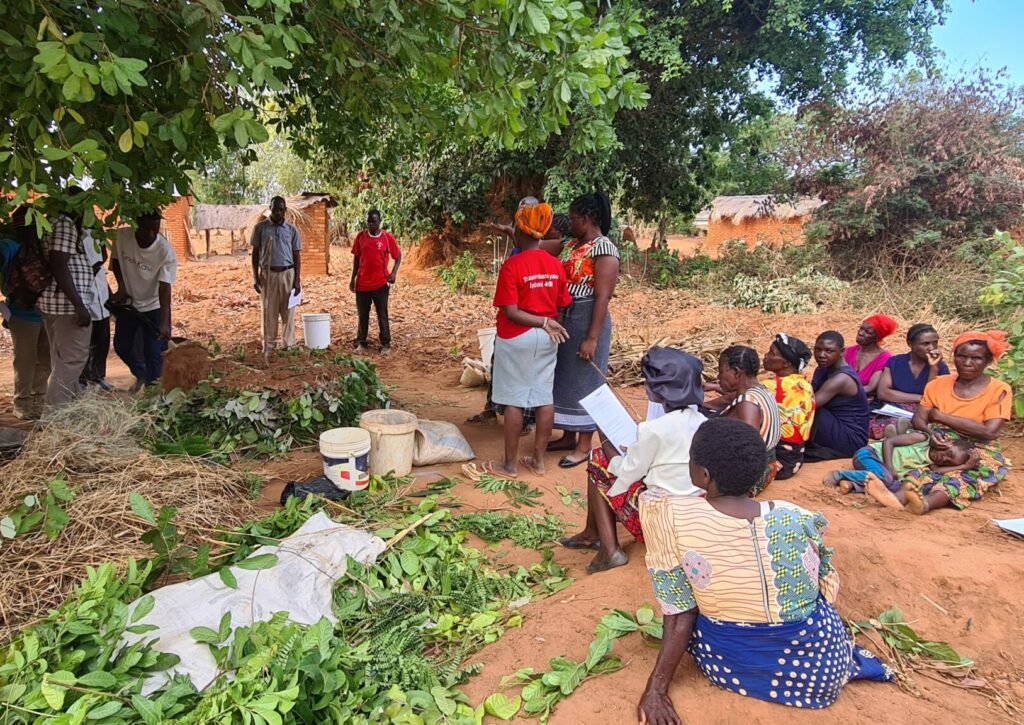
Volunteering Opportunities
For anyone with an environmental skill to teach, it is the perfect place to come and share it, whether here at Butterfly or at a local school or government building. Get involved in permaculture garden design’s, fundraise to build compost loo’s at schools, bicycle water pump’s, solar water heaters, greywater capture, rain water harvester and more, or bring your own environmental idea’s to share in the community!

